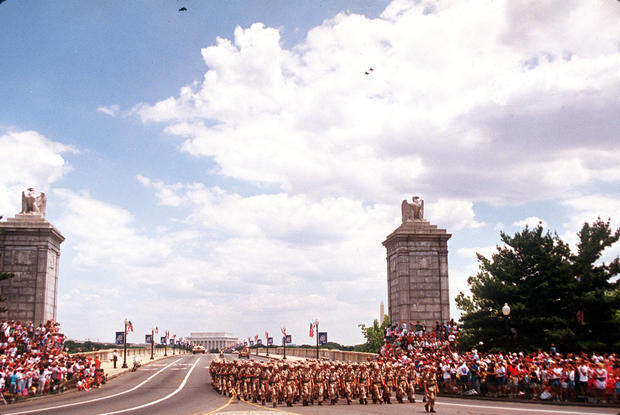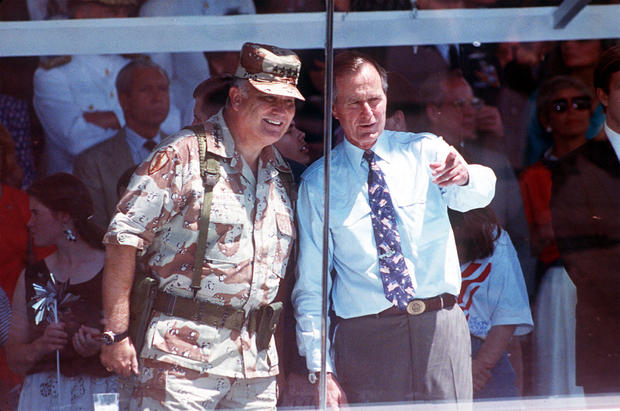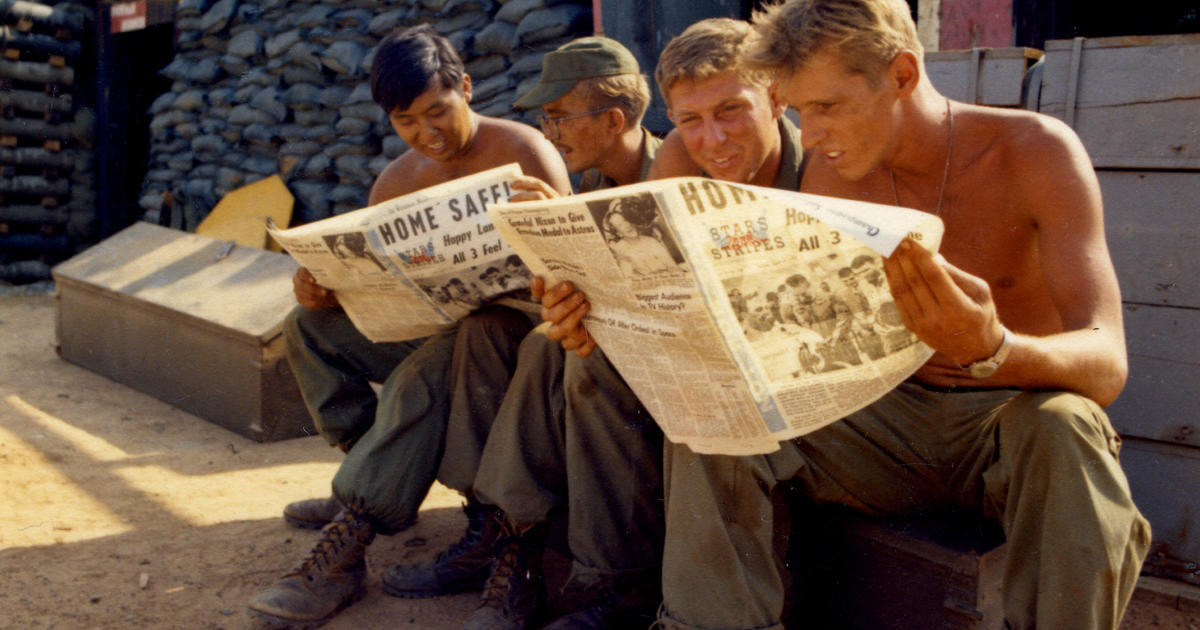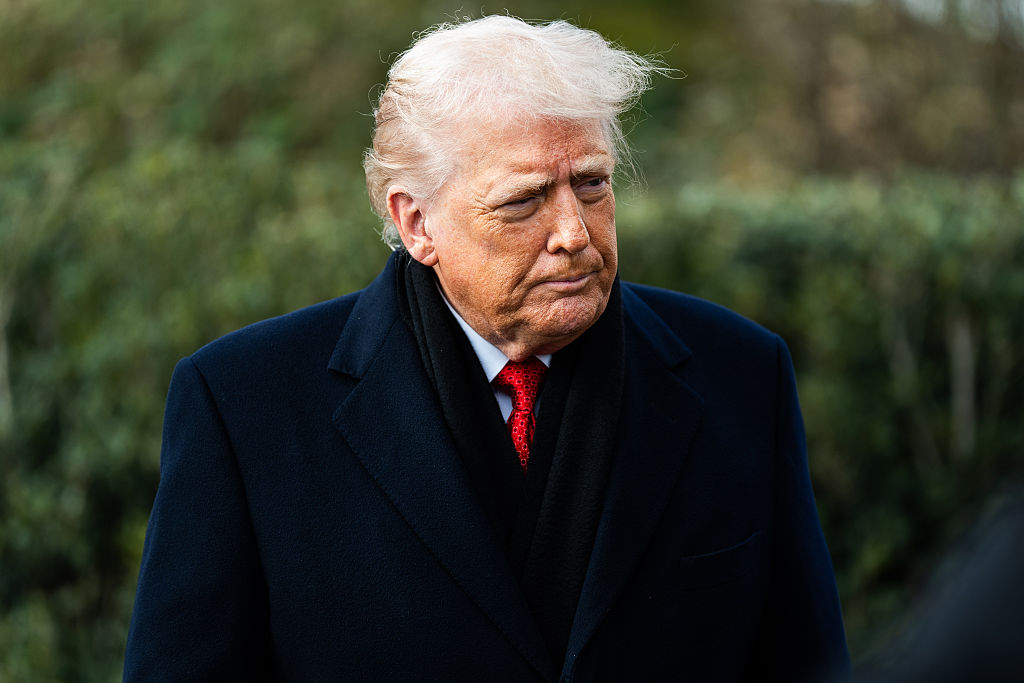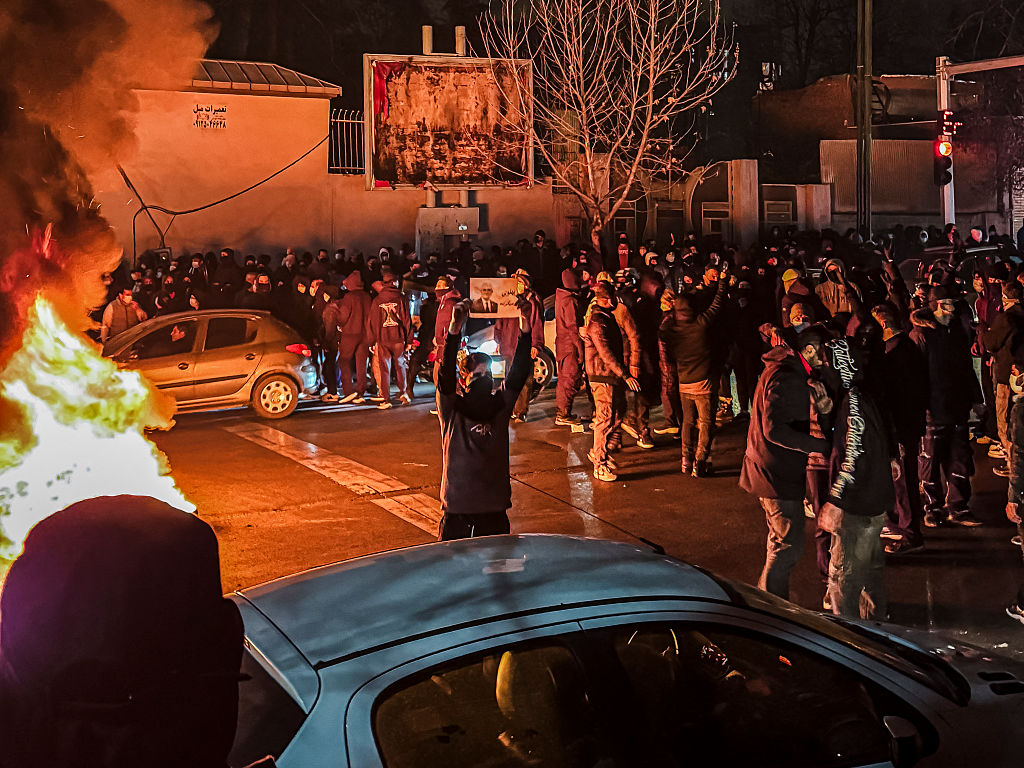How CBS News reported the last national military parade in 1991
The White House confirmed Tuesday that President Trump has requested the military begin preparations for a parade in Washington D.C. The last time a national military parade was held in the capital was June 1991 to celebrate the U.S. victory in the first Gulf War.
CBS News correspondent Eric Engberg covered the June 8, 1991 national parade. He described the "overall mood" as "celebratory and upbeat." But he said there was "so much military hardware moving, at times it seemed as if Washington was under attack."
Eight thousand Desert Storm troops marched in the national parade, 200,000 people watched the parade, Engberg reports. According to The Washington Post, it cost $8 million.
"I think we sent one of the most professional armies in American history to fight the war against Saddam Hussein," Engberg told CBS News anchor Bob Schieffer. "They didn't expect any parades on the way back, they just felt they had done what they were done to do and had accomplished their job. But the civilian sector of the country, the Americans who remember Vietnam and the divisions of that era and the mistakes of that war were not reported and those troops were given a hearty thank you."
According to Engberg's report, June 8th began with a tribute to those who were killed in the war. Former President George H.W. Bush laid a wreath at the Tomb of the Unknown Soldier, and fighter planes passed over in the missing wingman formation.
Mr. Bush spoke to loved ones of those who died, and at several times choked back tears. "We celebrate the fact that each person we commemorate today gave up life for principles larger than each of us," Mr. Bush said. "Principles that at the same time form the muscle and strength of our national heart."
The leader of the coalition forces in the war. U.S. Gen. Norman Schwarzkopf, marched with Mr. Bush. Engberg said Schhwarzkopf "set the cadence" for the parade.
One mother whose son was killed in the war told Engberg her son would have loved the display. "Jeff was total military, he loved the service and he loved his country" she said. Another mother whose son was killed said her son "loved what he was doing and he died for what he believed in."
A few peace activists also protested, and there were a few arrests, Engberg said.
After the parade, there was a USO show and a large fireworks show, which Engberg described as "the biggest fireworks display in Washington history."
National military parades were common after the Civil War, World War I and World War II. But there were few parades to honor Korean and Vietnam veterans. The Washington Post reports that after the last combat troops left Iraq in 2011, a spokesman for Army Gen. Martin E. Dempsey, said he did not think it was "appropriate" to have a parade while the war in Afghanistan was going on.
On Tuesday, White House press secretary Sarah Sanders said Mr. Trump "asked the Department of Defense to explore a celebration at which all Americans can show their appreciation."
According to The Washington Post, Mr. Trump was impressed by the Bastille Day parade he saw in France last year.
"It was one of the greatest parades I've ever seen," Mr. Trump told reporters two months later. "It was two hours on the button, and it was military might, and I think a tremendous thing for France and for the spirit of France."
The Pentagon told CBS News' David Martin that it is "aware of the request and is looking at possible dates."
